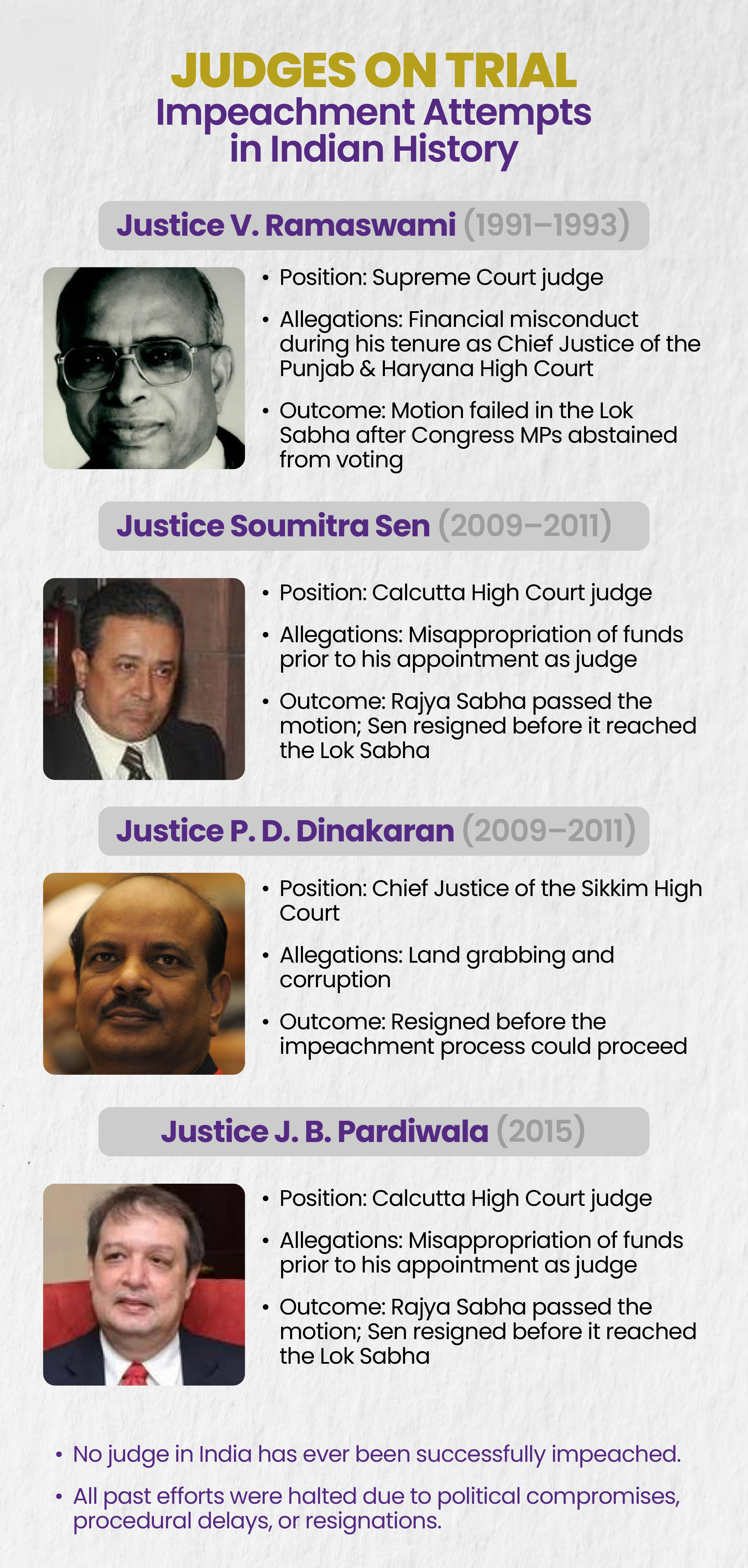Context:
The process to remove Justice Yashwant Varma from office was recently set in motion, with members of the Lok Sabha and the Rajya Sabha submitting notices to the presiding officers of their respective Houses. The notices, signed by a significant number of members, mark the beginning of the impeachment process against the Allahabad High Court judge.
Impeachment of High Court Judges in India:
High Court judges in India can be removed (impeached) for proven misbehaviour or incapacity. This process is governed by Article 217 read with Article 124(4) of the Constitution and the Judges (Inquiry) Act, 1968. The procedure is the same for both Supreme Court and High Court judges.

How is the impeachment process of a High Court judge initiated?
- A motion for removal must be signed by at least 100 Members of Parliament (MPs) in the Lok Sabha or 50 MPs in the Rajya Sabha.
- The motion is submitted to the Speaker of Lok Sabha or Chairman of Rajya Sabha, who may admit it.
- Once admitted, a three-member inquiry committee is formed. It includes:
- A Supreme Court judge
- A Chief Justice of a High Court
- A distinguished jurist
This committee investigates the charges and submits a report.
When judge is found guilty by the inquiry committee?
- If the committee finds the judge not guilty, the process ends.
- If found guilty, the House where the motion was initiated can vote on it.
- The motion must be passed by:
- A majority of the total membership of the House, and
- A two-thirds majority of the members present and voting
- Once passed in one House, it goes to the other House for the same process.
- If both Houses pass the motion, an address is sent to the President of India, who then orders the removal of the judge.
History of Impeachment:
No High Court judge has been successfully impeached yet, but Justice Soumitra Sen of the Calcutta High Court came close in 2011.
- He was accused of misappropriating funds when he was a court-appointed receiver (before becoming a judge).
- The Rajya Sabha passed the impeachment motion, but he resigned before the Lok Sabha could vote, ending the process.
Conclusion:
The impeachment process against Justice Varma has significant implications for the judiciary and the country. It ensures that High Court judges are held accountable for serious misconduct, but only after a fair, transparent, and rigorous process. This protects both the integrity of the judiciary and the rule of law.






